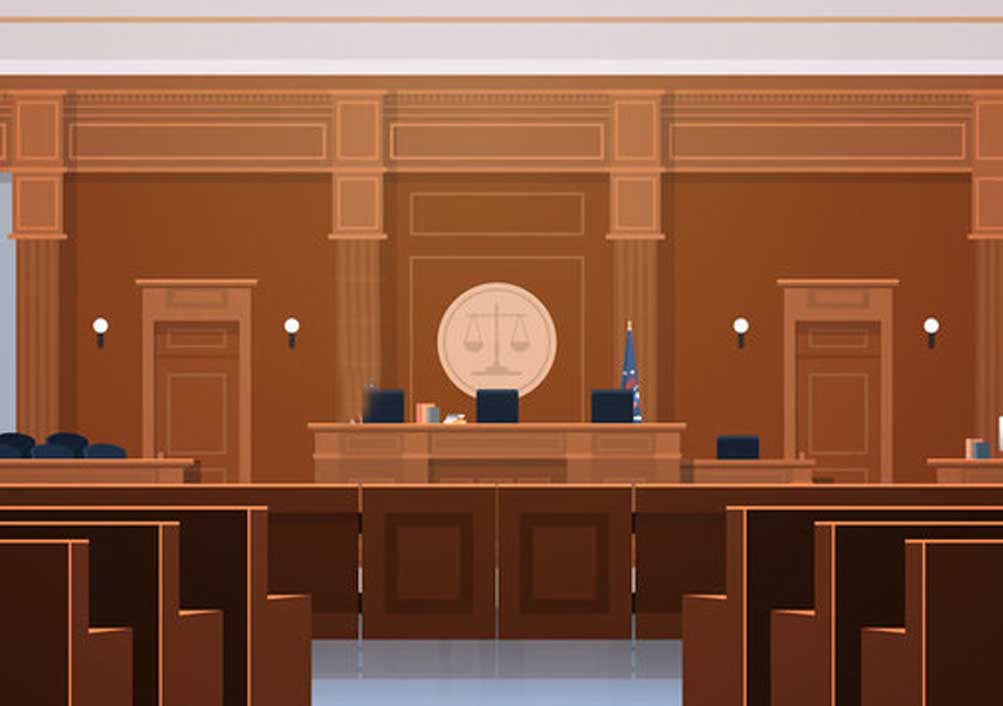In RSA-4109-2019 (O&M)-PUNJ HC- Plaintiff, who approaches Court, needs to stand on his own feet and prove his case, holds P&H HC Justice Alka Sarin [08-04-2022]

Read Order: Ram Prasad v. Balak Ram and Another
Monika Rahar
Chandigarh, April 9, 2022: While dealing with a regular second appeal impugning concurrent findings recorded by the lower Courts, the Punjab and Haryana High Court has observed that the plaintiff-appellant who approaches the Court needs to stand on his own feet and needs to prove his case.
The Bench of Justice Alka Sarin made the above-stated remarks as the plaintiff-appellant, in order to substantiate his claim of the suit property, produced the tax register of the Municipal Corporation, Faridabad for the year 1976-77 wherein allegedly the father of the plaintiff-appellant was recorded as the owner in possession of the suit property.
In this respect, the Court held that the sole reliance on the assessment registers (by the plaintiff-appellant) to contend that the plaintiff-appellant was the owner in possession was wholly misplaced and that the assessment registers were merely produced on the record and not duly proved.
The present regular second appeal was preferred by the plaintiff-appellant against the concurrent findings recorded by both the Courts below.
Brief facts relevant to the present lis are that a suit was filed by the plaintiff-appellant for issuance of a declaration declaring the sale deed of 1950 and judgment/award passed in 2007 as illegal, null and void and consequential relief of permanent injunction restraining the defendant-respondents from interfering the peaceful possession and enjoyment of the plaintiff-appellant over the suit property.
It was pleaded in the plaint that the plaintiff-appellant was the owner in possession of the property as described in the plaint and that the father of the plaintiff-appellant was the owner in possession of the suit property and this fact was recorded in the house tax register of the Municipal Corporation Faridabad for the year 1976-77.
It was further pleaded that the father of the plaintiff-appellant executed a Will in 1968 bequeathing the suit property in favour of the plaintiff-appellant and now by virtue of the Will he became owner in possession. Also pleaded was the fact that after filing of the suit and the written statement, it transpired that the father of the defendant-respondents purchased an area of 18 sq. yards from Khacheru son of Ajay Ram vide sale deed (in 1950) and, thereafter, suffered a decree in favour of the defendant-respondents in 2007. It was pleaded that the sale deed and the judgment/award were illegal, null and void and not binding upon the rights of the plaintiff-appellant.
On notice, the defendant-respondents appeared and filed their written statements taking preliminary objections regarding maintainability, cause of action, locus standi, and jurisdiction. It was pleaded that the plaintiff’s father died in 2001 while the suit was filed in 2011 after a gap of 10 years and the Will had not got probated till date.
It was further stated in the Written Statement that the father of the defendant-respondents, (Khacheru Ram) purchased the land from Khacheru Ram son of Ajay Ram vide sale deed (in 1950) and, thereafter, suffered a consent decree in 2007 pursuant to a family settlement before the Permanent and Continuous Lok Adalat, Faridabad. Hence, the defendant-respondents claimed to be owners in possession of the suit property.
The Trial Court dismissed the suit filed by the plaintiff-appellant. The plaintiff-appellant challenged the said judgment and decree before the Lower Appellate Court by filing an appeal which was also dismissed.
The counsel for the plaintiff-appellant contended that both the Courts below erred in dismissing the suit of the plaintiff-appellant inasmuch as the ownership and possession of the plaintiff-appellant stood proved from the assessment register which was produced by the plaintiff-appellant. The counsel further contended that the sale deed in favour of the father of the defendant-respondents was only qua 18 sq. yards and the consent decree was qua 180 sq. yards and, hence, the same would show that the transfer by way of the collusive decree was illegal, null and void.
After considering the cases of both the parties, the Court opined that the plaint was totally silent qua the area comprised in the suit land. The Court added that apart from describing the property in the plaint, no area was mentioned. It was also noted that the counsel for the plaintiff-appellant was unable to show how without having to mention the area, the sale deed and the judgment/award could be held to be null and void.
Further, on the reliance placed by the Counsel on the assessment registers to contend that the plaintiff-appellant was the owner in possession, the Court opined that it was misplaced. It was observed that the assessment registers were merely produced on the record and not duly proved, and thus, in this background, the Court held that the plaintiff-appellant who approaches the Court needs to stand on his own feet and needs to prove his case.
In the present case, the Court opined that besides the entries in the assessment register, which were also not proved, not an iota of evidence was produced by the plaintiff-appellant to show that he was the owner in possession of the suit property.
Therefore, finding no question of law and no illegality and infirmity in the judgments and decrees passed by the Courts below, the Court dismissed the appeal.
Sign up for our weekly newsletter to stay up to date on our product, events featured blog, special offer and all of the exciting things that take place here at Legitquest.




Add a Comment